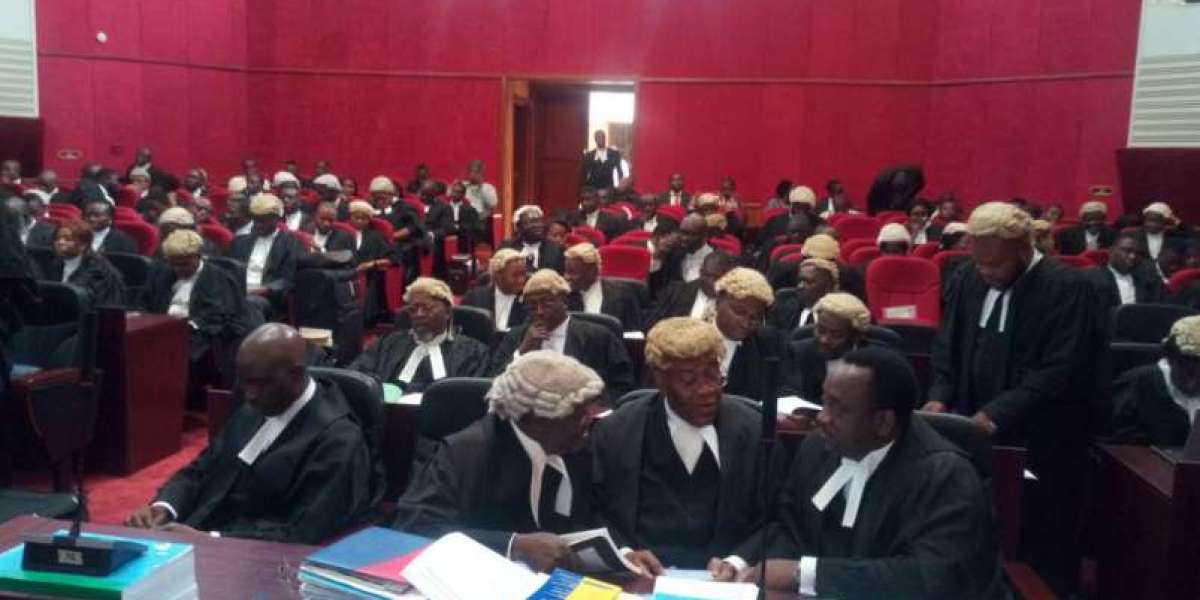In the Council Chamber of the Presidential Villa in Abuja, the President signed the measure into law, making it the first bill he has ever signed.
The proposed constitutional amendment would raise the retirement age for High Court Judges and others from 65 to 70, while the retirement age for Justices of Appeal and Supreme Courts is already set at 70.
ALSO READ: Bwala asserts that Buhari's cabinet is the least competent since 1999.
"Constitution of The Federal Republic of Nigeria, 1999 (Fifth Alteration) (No.37) Bill, 2023" was the title of the proposed amendment.
The bill also seeks to guarantee uniformity in the pension rights of judicial officers of "superior courts of record" as defined in section 6(5) of the amended 1999 constitution.
The section 6(5) list of courts includes, among others, the Supreme Court, the Court of Appeal, the Federal High Court, the High Court of Abuja, the High Courts of States, the Sharia Court of Appeal, the National Industrial Court, and the Customary Courts of Appeal.
This news comes one day after TheCable reported that former Attorney-General of the Federation and Minister of Justice, Abubakar Malami, advised former President Muhammadu Buhari not to sign the bill.
In a memo dated 23 May and sent to the office of the President's Chief of Staff, Malami informed Buhari that passage of the measure would impose a "huge financial and unexpected burden" on the federal government.
The former minister stated that the measure appears "extensive, overly broad, and ambiguous" and that it provides no "justification" for extending the retirement age and benefits for judges.
Malami asserted that the bill would impede the career advancement of judges, adding that "those currently on the bench would be required to remain longer, preventing others from being elevated to higher courts."
The former AGF stated that if the measure is passed, it could lead to increased calls for the extension of the retirement age for justices of the Supreme Court and Court of Appeal.
Malami added that the proposed amendment to the constitution would also abolish "the obligation of states to pay these modified retirement benefits."
He wrote: “Accordingly, the federal government enacted the Federal Judicial Officers (Administration of Pension) Act 2007, which transferred the responsibility and administration of pension of the federal judicial officers from the department of establishments in the office of the head of the service of the federation to the National Judicial Council.
“Similarly, State Governments are responsible for the pension of judicial officers in the state courts of record.
“These provisions are now being amended by the fifth alteration which now restricts the power of the federal government to make law with respect to Judicial Officers who retire after the age of 65.
“Regardless of extant economic realities of the federal government, by virtue of the fifth alteration, all judges who retire after attaining 65 years of age would be entitled to payment of their salaries for life, including all allowances in addition to any other benefit to which they may be entitled.
“By virtue of the constitution, the only persons entitled to payment of their last salaries for life as pension are the President, Vice-President and Justices of the Supreme Court and Court of Appeal. In the case of the latter, it’s only applicable if the justices retire at or after the age of 65 and have spent not less than 15 years.”




ego glory 1 y
good